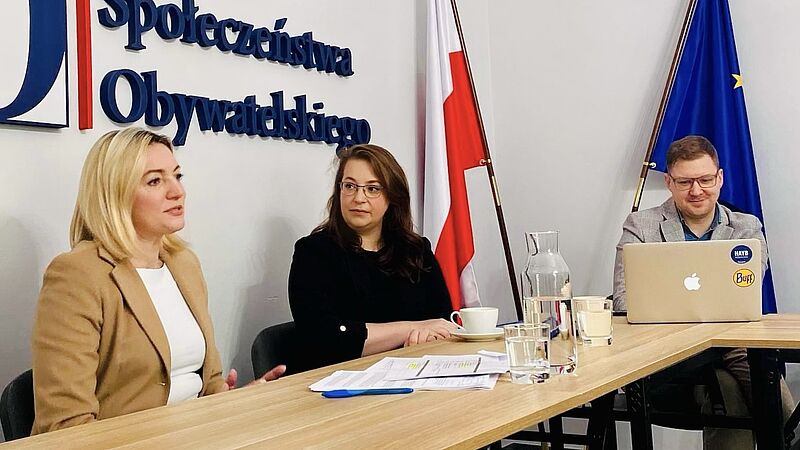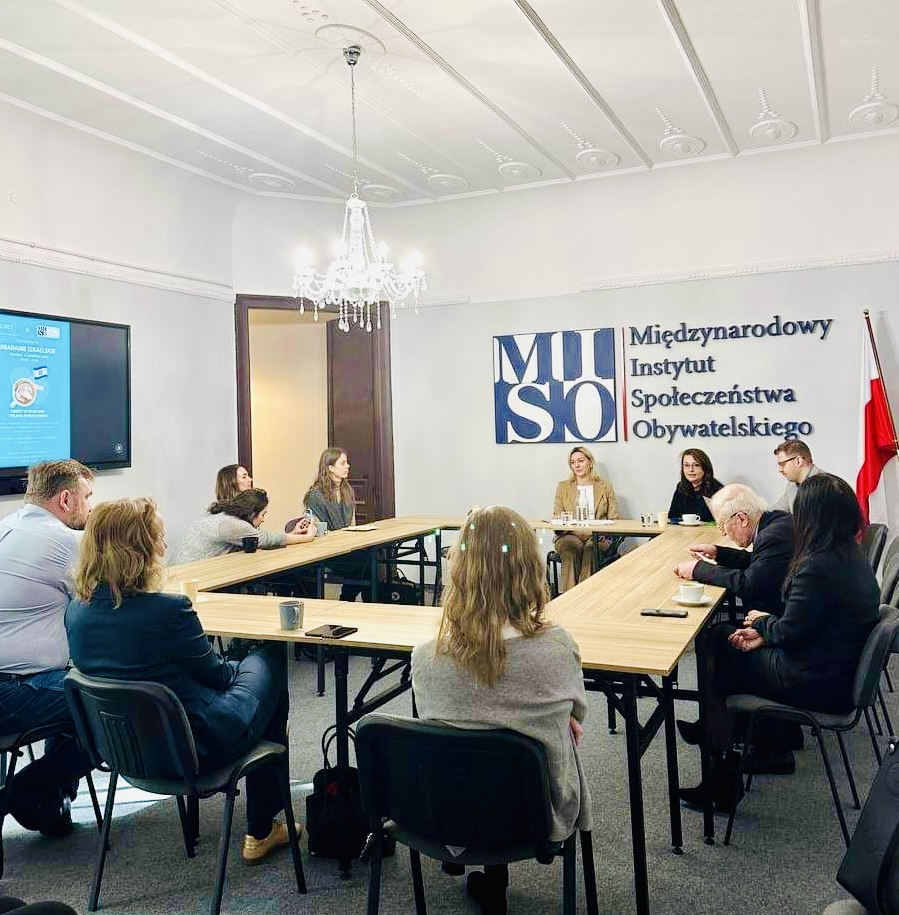ISRAELI BREAKFAST WITH ALEXANDRA GREN
The speaker began her speech by recalling a study tour organised a few years ago by Vital Voices Poland, thanks to the support of the ELNET-Poland Foundation and the cooperation with the Israeli Embassy in Poland. At that time, the initiative managed to bring together around 40 Polish managers, including representatives of start-ups - specialists from various industries, who mutually expanded their knowledge in Israel by holding meeting with companies, universities and funds working for innovation and economic success of Israel.
The trip strongly inspired the speaker to take action and showed good examples that Poles could learn from Israelis. According to Aleksandra Gren, the visit was a great lesson in innovation and the ability to cope in all conditions, thanks to a thorough process of education, preparation and the so-called Israeli "chutzpah".
Ms Gren also shared her experiences of business cooperation with Israelis. She pointed out that since the establishment of the state of Israel, after World War II, there has been a permanent state of insecurity, which affects Israelis' approach to learning, work, security, available resources and life in general. Therefore, Israelis maximise their income in every industry and take seriously all the resources they have.
Alexandra Gren was keen to share her professional experience and talk about the role of women in business. She emphasised that women often face difficulties in combining family and professional life. She mentioned the '30% Club'- a social campaign founded in Great Britain in 2010 by Helena Morrissey and now active in various parts of the world, including Poland. The campaign aims to increase the representation of women on company boards and management boards. In the UK, this goal has already been achieved after eight years (among FTSE 100 companies). In Poland, according to research by the '30% Club', women currently make up 12% of members of the boards of the largest companies. By definition, 30% is enough for the minority (women) to start influencing the majority (men).
In the second part of the “Israeli Breakfast”, Alexandra Gren answered questions from the attendees.
When asked if she was faced with a “glass ceiling”, Alexandra Gren replied that the “glass ceiling” is caused by the lack of systemic solutions that would allow women to combine their professional and family plans.
Nowadays, it is still women who have to take on the burden of caring for children and the elderly. At the same time, they want to be financially independent, and they face difficult choices about how to combine all these roles in life. This state of affairs limits women from reaching their potential and results in a lower representation of women in top positions, where the most important decisions are made. In doing so, Alexandra Gren emphasised that women need to build support networks, join forces, help one another and work towards bridging any divides. According to the speaker, a number of areas need better systemic solutions so that women in Poland can reach their full potential. She pointed out that Polish women are among the most entrepreneurial women in Europe. Their entrepreneurship often begins when they have to cope with critical situations, such as when they become single mothers.
While answering the question of what helped her the most in her career, she admitted that it was focusing on goals well met, being able to observe and listen, building values, being open to tasks requiring courage and operating in different cultures and latitudes across the world. She mentioned that she owed a lot to personal motivation, which she was drawing from family traditions of her ancestors. As an example, she cited the role of motivation that she admired in every Israeli - often a motivation derived from family stories.
The speaker gave business tips to the guests gathered at MISO's headquarters at the end of the meeting - one of which was about being open to asking questions. This is because she believes that giving up on being inquisitive and asking questions is a waste of the moment and numerous opportunities not only in a business context, but also in a personal one.
Aleksandra Gren has worked in the fintech and banking technology sector for 25 years in Fortune 500 companies in Europe, the US and the Middle East. She is a graduate of the University of British Columbia and the London School of Economics. In addition, she is active in organisations to strengthen the voice of women in the economy, promote education and increase opportunities for young people, through development programmes and mentoring. She has won numerous awards in Poland, Europe and the USA.
"Israeli Breakfasts" is a series of meetings about Israel that portray the country from the perspective of personal stories and experiences. The project aims to create a platform for dialogue on topics such as the Israeli society, the role of women and the world of new technologies. The key to the Breakfasts is the search for an answer to the question: what unites - instead of dividing - Poles and Israelis? The meetings begin with a joint breakfast, during which the invited guests have the opportunity to taste authentic Israeli cuisine.
ELNET (European Leadership Network) is an international not-for-profit organisation with a single objective - to share experiences and enhance cooperation between Europe and Israel based on common needs and democratic values.






